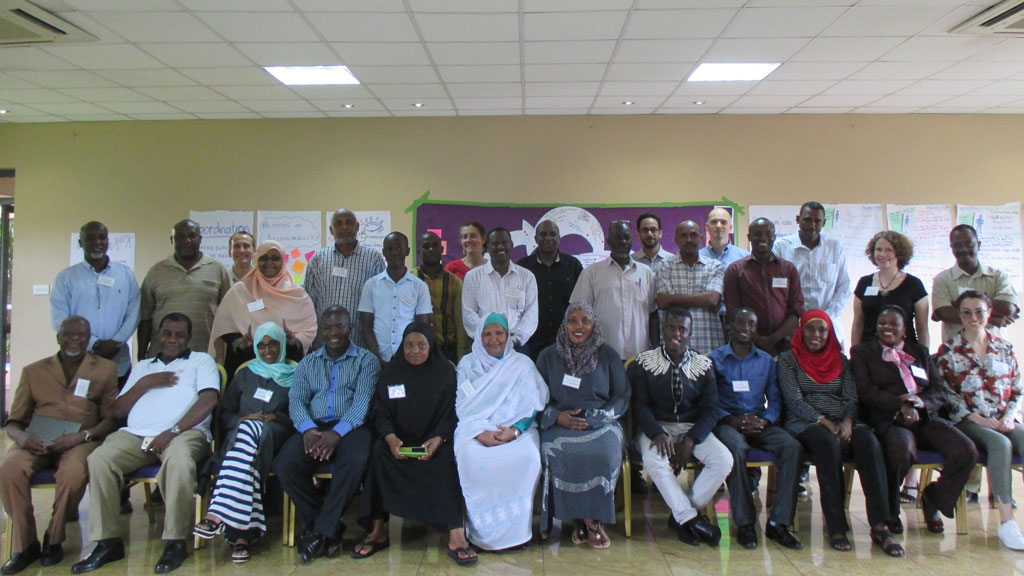
OIC-sponsored Workshop in Uganda on Building Capacity for Responding to Humanitarian Crises
26/04/2017- A five-day workshop to strengthen the capacity of non-governmental organizations (NGOs) to effectively respond to humanitarian crises and coordinate within the international humanitarian system is held in Kampala, Uganda at the initiative of the Organization of Islamic Cooperation (OIC), in cooperation with the United States Agency for International Development, Office of U.S. Foreign Disaster Assistance (USAID/OFDA) and implemented by International Medical Corps.
Participants in the Kampala workshop, who represent NGOs operating in Uganda, Somalia and the Sudan, are being afforded the opportunity to develop a better understanding of the global humanitarian setting, to familiarize themselves with key actors of the humanitarian world as well as with the principles governing the international humanitarian system.
Following the 5-day workshop, International Medical Corps will deploy subject matter experts in functional areas or domains identified by the participating NGOs to provide onsite support to further strengthen their capacities.
There is an increasing recognition in the international humanitarian community of the vital role that local and national NGOs play in the response to humanitarian emergencies. However, due to the complexities of funding, implementation, and reporting procedures inherent in working with international donors and engaging in international coordination structures, many local and national NGOs face barriers in establishing the institutional knowledge that would enable them to readily meet numerous donor requirements to secure funding of their humanitarian activities.
The workshop is part of a two-year initiative, entitled “Building Better Capacity of National NGOs for Response and Coordination in Humanitarian Crises” targeting local and national NGO partners of the OIC across Africa and the Middle East.
A similar workshop will be held in Tunisia in early May 2017 for the benefit of OIC NGO partners from Yemen, Libya, Jordan and Lebanon, who will also benefit from a post-workshop period of onsite support by subject matter experts.
